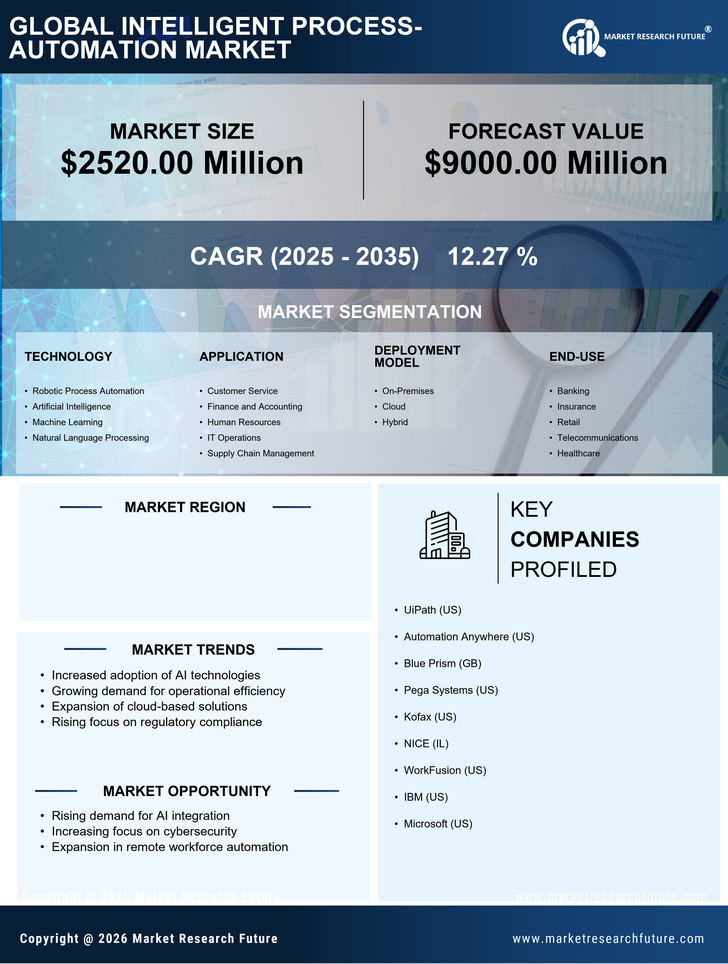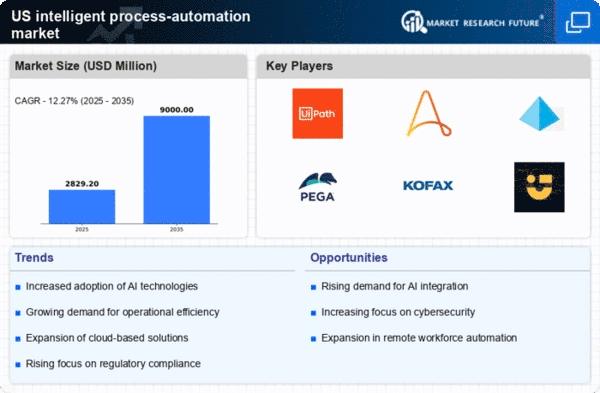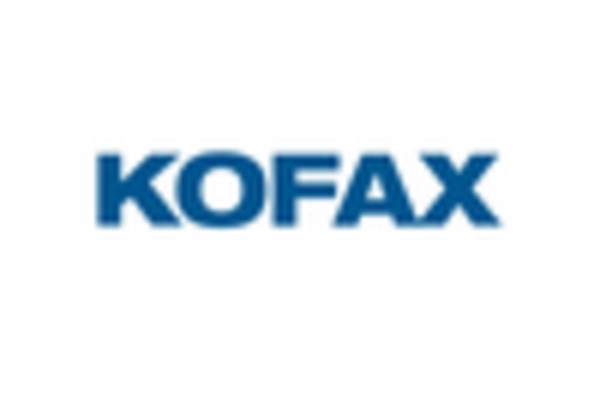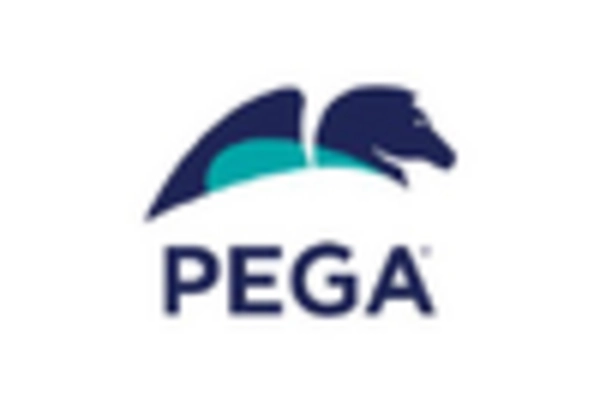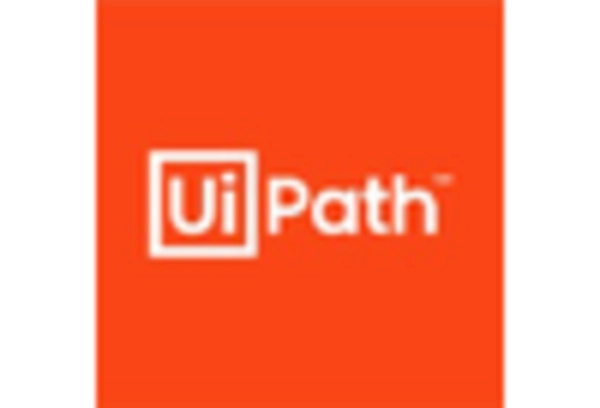Integration of Advanced Analytics
The integration of advanced analytics into the intelligent process-automation market is reshaping how organizations approach decision-making. By leveraging data analytics, businesses can gain insights that drive automation strategies, leading to more informed and effective processes. This trend is evidenced by a reported increase in the use of analytics tools, with approximately 60% of organizations indicating that they plan to incorporate analytics into their automation initiatives. The ability to analyze data in real-time allows companies to optimize workflows and enhance customer experiences, thereby propelling the growth of the intelligent process-automation market.
Rising Focus on Customer Experience
In the intelligent process-automation market, there is a notable shift towards enhancing customer experience. Organizations are increasingly adopting automation solutions to improve service delivery and responsiveness. This focus is reflected in a survey indicating that 70% of companies view customer experience as a critical factor in their automation strategies. By automating routine tasks, businesses can allocate more resources to customer engagement and support, ultimately leading to higher satisfaction rates. As customer expectations continue to evolve, the intelligent process-automation market is likely to expand, driven by the need for businesses to adapt and innovate.
Shift Towards Remote Work Solutions
The intelligent process-automation market is witnessing a shift towards solutions that support remote work. As organizations adapt to new work environments, there is a growing need for automation tools that enable seamless collaboration and productivity from various locations. Data indicates that approximately 50% of companies are investing in automation technologies to facilitate remote operations. This trend is likely to continue as businesses recognize the benefits of flexible work arrangements. Consequently, the intelligent process-automation market is expected to expand, driven by the demand for solutions that enhance remote work capabilities.
Growing Demand for Operational Efficiency
The intelligent process-automation market is experiencing a surge in demand driven by organizations seeking to enhance operational efficiency. Companies are increasingly recognizing the potential of automation technologies to streamline processes, reduce costs, and improve productivity. According to recent data, businesses that implement intelligent automation can achieve efficiency gains of up to 30%. This trend is particularly pronounced in sectors such as manufacturing and finance, where operational bottlenecks can significantly impact profitability. As organizations strive to remain competitive, the intelligent process-automation market is likely to see continued growth, with investments in automation technologies becoming a strategic priority.
Regulatory Compliance and Risk Management
The intelligent process-automation market is significantly influenced by the need for regulatory compliance and effective risk management. Organizations are under increasing pressure to adhere to stringent regulations, particularly in sectors such as finance and healthcare. Automation technologies can facilitate compliance by ensuring that processes are executed consistently and accurately. Recent studies suggest that companies utilizing automation for compliance purposes can reduce the risk of non-compliance by up to 40%. This growing emphasis on risk management is likely to drive further investment in the intelligent process-automation market as businesses seek to mitigate potential liabilities.
